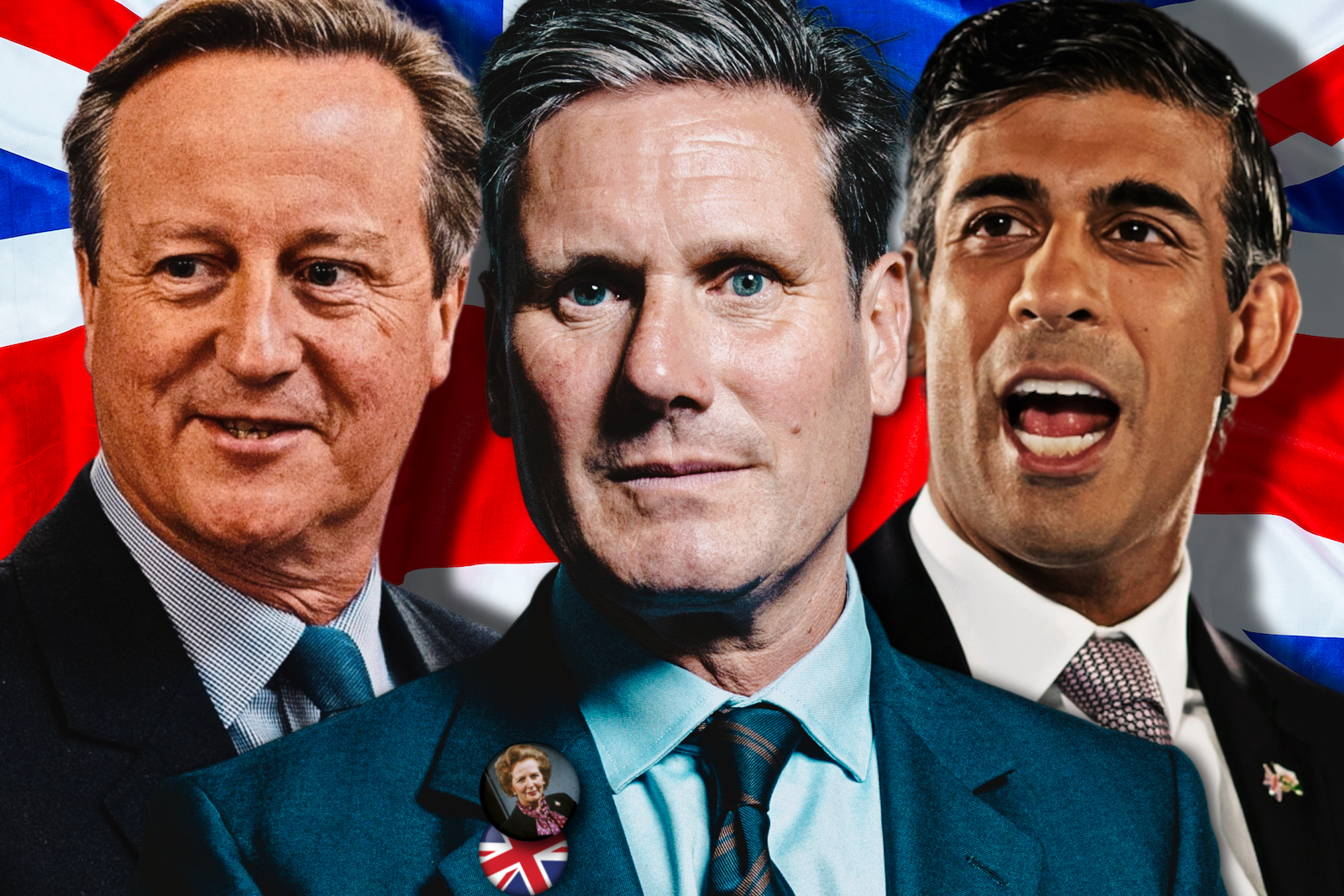
The Tories Had a Good Solid 190-Year Run
The UK Conservative Party, the “world’s most successful party,” is on the brink of electoral oblivion as polls ahead of the July 4th snap election predict they will lose almost 300 seats in the House of Commons.
Having been in power since 2010, the Tories inherited an economy devastated by the 2008 global financial crisis, which saw the outgoing Labour government leave a note stating, “there is no money left.” Despite Labour officials stating the note was a joke that had become a tradition between incoming and outgoing governments, the Tories went on to preside over a decade of austerity in an attempt to cut the deficit and restore financial stability at a time when countries across the Eurozone faced default, and many required international bailouts.
While many point to the decline in the deficit under the Tories from 2010 to 2019 as evidence of prudent fiscal management, others argue that austerity as a policy choice did more harm than good, as the lion’s share of the cost was shouldered by cuts to the public sector and welfare, which today somewhat explains the stagnant levels of growth and productivity across the economy.
Brexit, described as the greatest act of self-harm a nation has ever committed, has largely been a failure. Friction with the largest single market in the world has not been replaced by trade deals with growing economies in Asia or the Commonwealth. The reality of physical distance and geography as a barrier to trade has begun to be realized.
During the early months of the COVID-19 pandemic, the Conservatives saw an increase in support as policies such as furlough were responded to positively, as workers received 80% of their pay to remain cocooned at home. However, after the initial honeymoon period and when the impact of lockdowns began to set in, it has been downhill for the Conservatives ever since.
Controversy began during the lockdown when it was found that Downing Street was in breach of the COVID rules they had mandated for the country, which led to both Prime Minister Boris Johnson and Chancellor Rishi Sunak being fined by the police for “parties” held that broke social distancing rules.
After Russia’s invasion of Ukraine in February 2022, it looked like the Conservative Party had turned a corner as the pandemic became less front and center and Boris Johnson assumed the Churchillian role of defending Eastern Europe from a belligerent power.
But in July 2022, the beginning of Boris Johnson’s downfall began after his reluctance to sack the Tory Party Deputy Chief Whip and long-time ally Chris Pincher, who was accused of sexual misconduct. Described as “Pincher by name, Pincher by nature,” it was shown that Downing Street was aware of the allegations against Pincher and had chosen not to act.
After only two years in office, plagued by controversy that began when tens of thousands of pounds were spent on new wallpaper for his Downing Street apartment, Johnson found himself unable to form a government as the majority of the party abandoned him, notably Rishi Sunak, who was found to have registered the trademarks for his leadership campaign almost six months before resigning.
The aftermath of Johnson saw further chaos as the leadership battle saw the parliamentary party consolidate around Rishi Sunak only for the party members to vote for Liz Truss and her promises of lower taxes, immigration, and regulation. After being made prime minister in October 2022, she was eventually ousted by the party only 44 days later following her catastrophic ‘mini-budget’ that spooked markets so considerably it was blamed for increasing mortgage rates, risking the UK pension system, and increasing the cost of UK borrowing.
After being removed by the infamous 1922 Committee amidst international and national humiliation, Rishi Sunak was made prime minister by the parliamentary party, despite rumors of a Johnson comeback or a Mordaunt challenge. Since November 2022, the UK economy has returned to the stability that typically characterized it until 2016 and the Brexit referendum. Still, high inflation and a cost-of-living crisis have hampered growth and living standards.
While the commitment to orthodox economic policy has seemingly worked, inflation has returned to its normal target, and interest rates may be cut toward the end of the year. Unfortunately for Rishi Sunak, it is too little too late, and despite having done the sensible thing as it relates to the economy, the hardliners among the parliamentary party and the members have lost the little faith they ever had in him.
Against the backdrop of record-high net migration and an inability to control the UK’s borders despite seemingly being able to outside the European Union, confidence in him and the party as it currently exists to deliver has been irrevocably lost.
While polls predict a historic landslide victory for the Labour Party led by Sir Keir Starmer, who is now leading the Conservatives by over 20 points in the polls, a lead they have maintained for over two years, it is less a case of the Labour Party being popular than the Conservatives being unpopular.
After nearly 15 years in office, many simply view the upcoming Labour landslide as analogous to the swinging of a pendulum that, after 15 years, is decisively swinging in the other direction.
Similarly, many view the electability of the Labour Party as a function of them becoming increasingly ‘center-right’ and in many respects identical to the Tories. On policy and rhetoric, many fail to see significant differences between the two. Despite ‘pledges’ to fix the country, many of which have been broken, questions remain about where the money will come from following Shadow Chancellor Rachel Reeves’s commitment to the same fiscal rules as the Conservatives—without tax rises or budget cuts, this leaves little room for the plans they have outlined.
Like the Conservatives, the Labour Party has promised not to raise taxes on the wealthiest in the UK, and while they plan to abolish the non-dom status and the VAT exemption of independent schools, no one knows where the majority of the revenue needed to fund their agenda is coming from.
While the lack of transparency and information in any other election campaign would be significant, at a time when the country is tired of the Conservatives, it appears no one really cares whether the Labour Party even has a plan. In terms of the leaders’ personalities, many have described the UK election as the most boring in living memory, as two technocrats with little to no natural political instincts go head-to-head as the country collectively winces.
Having been called out for not standing in the upcoming election by Piers Morgan, leading Brexiteer Nigel Farage has become the leader of Reform UK and will contest a parliamentary seat in Clacton, Essex – the former seat of UKIP’s only member of parliament, Douglas Carswell.
In his maiden speech as head of Reform UK, he noted the UK election is over, having already been won by Labour, who, in a manner of speaking, have not needed to fire a shot, except at their own, due to the implosion of the Conservative Party.
The contest on July 4th is really about who becomes His Majesty’s opposition to the next Labour government. Reform UK, who are standing candidates across the country, are within touching distance of the Tories in some polls—splitting the right-wing vote, making the Labour majority greater, and in all likelihood killing the Conservative Party in its current form.
Despite many pointing to the United Kingdom as being the outlier in world politics, as every election in the West has seen a resurgence of the right, the Labour victory that is on the horizon is part of a similar trend as the Labour Party has abandoned its socialist principles in all but name.
Like Europe and presumably the United States come November, the UK has similarly shifted right, evidenced by Labour’s purge of the socialist elements from the party in recent weeks and their evolution to become a center-right party. More broadly, the loss of support for the Conservatives is not a result of the country becoming left-wing, but the result of the Conservatives not being right-wing enough and able to deliver that agenda.
Until now, the UK voting system has made it nearly impossible for smaller, more extreme parties to win seats in Parliament. A notable example is the UK Independence Party (UKIP), which received over four million votes in 2015 but did not secure a single seat. Although electoral reform is a key goal for all parties except Labour and Conservative, many question its feasibility. The Labour Party’s anticipated majority might make them unlikely to pursue reforms that could empower disaffected voters who have shifted their support to the Greens, the Liberal Democrats, and independent candidates in this election.
The 2024 UK election holds significant importance after more than a decade of stagnated growth, rising geopolitical tensions in Europe, and challenges to the Union. Despite the crucial context, the electoral system and the media’s influence have turned what should have been a competitive election into a mere formality—a symbolic transfer of power that is unlikely to bring meaningful change to a nation increasingly described as being in a state of ‘managed decline.’

